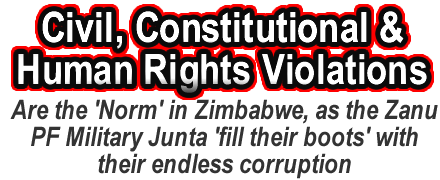- Details
- Written by: DMRNO, ZIP, ZHRO, ZEM and Chief Felix Ndiweni
- Category: Take2Zimbabwe
- Hits: 1165
Diplomatic Action against Zimbabwe Politicians implicated in Gold smuggling and Money Laundering involving individuals, local Financial Institutions, acts promoting lawlessness in SADC, noting failure by SAPS to comply with 30 October 2014 High Court ruling on human rights abuse in Zimbabwe. {Download the Written Petition HERE}
Zimbabwe Integrated Platform, Disabled Migrants Rights Networking Organization, Africa Integrated Platform, Zimbabwe Human Rights Organisation, Zimbabwe Economic Movement, Zimbabwe Youth Alliance and stakeholders partners are bringing to your attention, and seeking enforcement and implementing the 2014 ruling by High Court, into Act for rule of law. We prevail with the possibility to curb an influx of migrants fleeing violence, intimidation and harassment into South Africa.
We understand that Gold Corruption, and Money Laundering by Al Jazeera involving politicians, individuals and local financial institutions should be investigated and perpetrators charged accordingly.
It is also noted that Human Rights abuses are being enacted due to dividends earned from Money Laundering and Gold smuggling syndicates.
On 30 October 2014, the Constitutional Court of South Africa handed down its judgment in a landmark case for international criminal justice.
- The appeal related to the responsibilities of the South African Police Service (SAPS) under domestic and international law to investigate acts of torture, as a crime against humanity, that were allegedly committed in Zimbabwe.
- The decision, by South Africa’s highest court, reaffirms the obligations set out in the South African Implementation of the Rome Statute of the International Criminal Court Act 27 of 2002 (ICC Act) regarding investigation and prosecution of international crimes.
- The case, which is the first to be brought in terms of South Africa’s ICC Act, provides substantive and practical content to South Africa’s Rome Statute obligations. The Constitutional Court found that South Africa’s prosecuting and investigating authorities ignored South Africa’s international and domestic obligations in their initial refusal to investigate.
